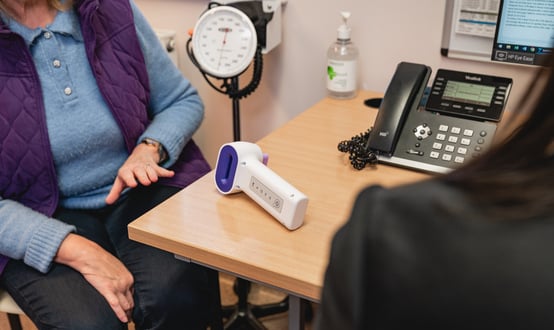Royal Marsden doubles genomic testing capacity through automation
- 24 July 2023

The Royal Marsden NHS Foundation Trust is partnering with Automata, an automation company powering life sciences labs, to double its genomic testing capacity through a new robotic sample processing platform.
The partnership will see the UK’s first fully automated system for clinical cancer genomic testing introduced.
The hospital’s clinical genomics service is the cancer testing laboratory for the North Thames Genomics Laboratory Hub. With support from Automata it will introduce integrated automation for cancer sample testing, helping to speed up diagnosis of the disease and allow personalisation of more cancer treatments.
The installation of the new system will increase the hospitals’ next-generation sequencing by around 2,000 tests each month, as well as expand the range of tests the specialist cancer centre can carry out.
Professor Michael Hubank, scientific director of clinical genomics at The Royal Marsden NHS Foundation Trust, said: “Thanks to Automata’s innovative robotic technology, this UK-first clinical diagnostics installation will transform genomic testing at The Royal Marsden by streamlining our processes, substantially increasing our capacity without compromising accuracy.
“Once opened, the facility will enable us to analyse the genetic make-up of more cancers than ever before, helping us to target cancer treatments and identify those at higher risk of the disease.
“Genomic testing is currently labour intensive and involves repetitive tasks, so fully automating the process will give our scientists and technicians more time to focus on quality and on the scientific aspects of their important work.”
The newly automated service will also enable The Royal Marsden to launch a new genetic screening service to identify people at risk of cancer based on their inherited genetic mutations. If people are identified as being at risk of developing cancer through the testing they can be more closely monitored to pick up on any signs of the disease at an earlier stage, improving patient outcomes.
Automata and The Royal Marsden’s Clinical Genomics Laboratory will automate five workflows, made up of 20 LINQ benches, six robots and 37 laboratory instruments to double sample throughout for DNA extraction, quality control and sequencing library preparation.
The LINQ platform features a laboratory smart bench with integrated automation capabilities and powerful proprietary lab orchestration software. It will enable labs to easily reduce human touchpoints and increase efficiency and accuracy without needing to find laboratory space for bulky equipment.
Neal Parker, strategic account director at Automata, said: “As well as the increased capacity, scientists in the laboratory now have more walk-away time to spend on analysis and research. We look forward to continuing to work closely with The Royal Marsden to shape the future of integrated automation for genomics.”
Set to be completed in 2024, the new installation was funded by the National Institute for Health and Care Research (NIHR) Biomedical Research Centre at The Royal Marsden and The Institute of Cancer Research, London, and The Royal Marsden Cancer Charity.
It will be housed at the NIHR Centre for Molecular Pathology.
Towards the end of last year, Health Education England extended the GeNotes online tool – used by clinicals to access vital genomics information for patients – to GPs and clinicians working in primary care.




